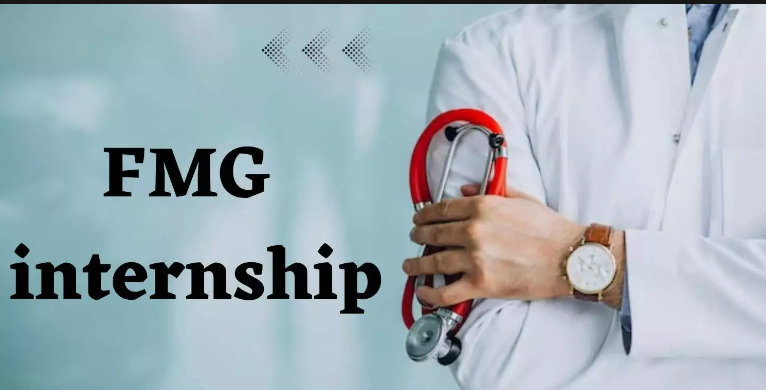What It Takes to Be a Physiotherapist – Here’s How to Find One
The field of physical therapy has grown significantly in importance and recognition in the fast-paced world of today. Physical therapists are essential in helping people heal from injuries, control chronic illnesses, and enhance their general quality of life. This in-depth essay explores the several career options available in physical therapy, emphasising the crucial role played by physiotherapists in comprehending the intricacies of the human body and providing efficient treatments.
A Diverse Approach to Human Body Understanding by the Physiotherapist
The field of physical therapy is dedicated to fully comprehending the human body. The brain, neurological system, cells, joints, and bones are just a few of the organs that physiotherapists are extensively trained about. Physiotherapists are able to accurately identify and treat a variety of illnesses and injuries by assessing the health of these essential parts.
The Brain: Unlocking Neuroplasticity’s Power
The functioning of our body is controlled by the wonderful organ known as the brain. Physiotherapists use neuroplasticity to encourage healing and recovery because they are aware of the complex interaction between the brain and the body. Through tailored physical therapy interventions, individuals can regain lost function thanks to the brain’s neuroplasticity, which refers to its capacity to reorganise and adapt.
The Nervous System: Getting It Back in Balance and Working
The nervous system acts as the body’s internal communication network, carrying signals from the brain to various organs. Through specialised procedures, physiotherapists concentrate on bringing the nervous system back into balance and functionality. They can reduce pain, increase mobility, and promote general wellbeing by focusing on the nerve system.
Unleashing the Regeneration Power of Cells
Our bodies are composed of small units called cells. Physical therapists use a variety of techniques to promote healing and tissue repair because they are aware of the potential of cellular regeneration. Physiotherapists harness the power of cellular regeneration through targeted exercises, physical therapy, and cutting-edge technologies to hasten the healing process.
Joints: Increasing Flexibility and Mobility
Maintaining flexibility and movement depends on joints. The assessment of joint function and creation of individualised therapy regimens to improve and restore mobility are specialties of physiotherapists. Physiotherapists assist people in regaining their independence and enhance their general quality of life by combining stretching exercises, strengthening methods, and joint mobilisation.
Bones: Increasing the Stability of the Base
A healthy body is built on a foundation of strong bones. Physiotherapists with a focus on bone health use weight-bearing exercises and focused workouts to improve bone density and ward off osteoporosis. Physiotherapists promote bone strength and lower the risk of fractures by using their knowledge to benefit their patients’ long-term health.
Physiotherapists Function: A Holistic Approach to Treatment
Physiotherapists are essential members of the healthcare team because they treat patients holistically, taking into account all elements of their health—physical, psychological, and emotional. They collaborate closely with patients to create individualised treatment regimens that are catered to their unique requirements and objectives. Physiotherapists promote comprehensive healing and optimum recovery by taking the person as a whole.
Evaluation and Diagnosis: Finding the Root Cause
To determine the underlying cause of a patient’s ailment, physiotherapists first undertake a thorough assessment and diagnostic. They acquire crucial data through physical examinations, medical history reviews, and diagnostic tests in order to create an accurate treatment plan.
Planning the Treatment: Personalised Interventions for the Best Results
Physical therapists develop unique treatment regimens for each patient based on the results of the examination. These plans involve a range of interventions, such as manual therapy, modalities, therapeutic activities, and patient education.
Exercises for Therapy: Increasing Strength and Function
Physical therapy’s foundational component is therapeutic exercise. Exercise regimens created by physiotherapists are intended to reestablish physical function in general, including strength and flexibility. Depending on the patient’s health and goals, these exercises could involve stretching, strengthening, balance training, and aerobic workouts. Physiotherapists assist patients in regaining their functional capacities and enhancing their quality of life by progressively advancing the exercises.
A Hands-On Approach to Healing with Manual Therapy
With manual treatment procedures, the physiotherapist’s hands manipulate joints, soft tissues, and muscles with dexterity. These methods seek to lessen discomfort while enhancing range of motion and tissue mobility. Joint mobilisation, soft tissue mobilisation, myofascial release, and manual traction are a few examples of manual therapy. Physiotherapists encourage tissue repair and restore ideal movement patterns by utilising precise treatments.
Modalities: Using technology to improve recovery
Physiotherapists frequently use modalities to promote healing and hasten recovery in addition to physical activity and manual therapy. Electrical stimulation, ultrasound, heat or cold therapy, laser therapy, and therapeutic taping are a few examples of these methods. Physiotherapists can help stimulate tissue regeneration, lessen inflammation, and reduce pain by adding these cutting-edge technology into their therapy regimens.
Patient Education: Giving People the Power to Improve Their Long-Term Health
Physical therapy places a high priority on patient education. Physiotherapists enable people by educating them about their conditions, outlining the course of treatment, and providing advice for self-management. This instruction may cover topics such as good body mechanics, ergonomic concepts, at-home workout plans, and injury prevention techniques. Physiotherapists encourage long-term health and wellbeing by giving patients the tools to manage their illness on their own.
Scope of Physiotherapist Career
The demand for high-quality healthcare is always growing, and the field of physical therapy has a lot of work opportunities. In order to serve a variety of patient demographics, physiotherapists can experiment with diverse practise environments and develop distinct specialties. The following are a few prospective careers in physical therapy:
1. Medical facilities and rehab facilities
For physiotherapists, hospitals and rehabilitation facilities offer a diversified and demanding environment. They assist patients who are recovering from operations, injuries, or serious medical conditions in these environments. Physiotherapists work with multidisciplinary teams to create thorough treatment regimens and ease patients’ return to normal activities.
2. Athletics and sports
Physiotherapists are frequently used by sports and athletic teams to enhance performance, avoid injuries, and speed up recovery. These experts collaborate closely with players to improve their total physical conditioning, strength, and flexibility. They might work on developing sport-specific training plans, injury prevention programmes, and on-field evaluation and treatment.
3. Independent Practise
Many physiotherapists start their own private practises where they provide patients who require physical therapy specialised services. The administration of patient care can be done independently and flexibly in private practise. Physiotherapists have the ability to concentrate on certain areas of expertise, refine their therapeutic philosophies, and create enduring connections with their patients.
4. Senior Care
The demand for physiotherapists with a focus on geriatric care is rising as the world’s population ages. These specialists help senior citizens retain their mobility, control chronic diseases, and enhance their general quality of life. Geriatric care-focused physiotherapists provide a variety of services catered to the special requirements of senior citizens.
- Prevention of Falls and Balance Training
The likelihood of falls and associated injuries is one of the main issues facing older persons. In senior care, physiotherapists are essential in fall prevention and balance instruction. In order to enhance balance and lower the risk of falling, they identify an individual’s risk factors, such as muscle weakness, poor balance, and environmental dangers. Physiotherapists enable older persons to keep their independence and confidence in carrying out daily tasks through exercises, gait training, and home modifications.
- Management of Chronic Pain
Older persons frequently have chronic pain, which frequently impairs their mobility and general wellbeing. Physiotherapists that specialise in geriatric care use a variety of strategies to effectively manage chronic pain. To reduce pain and enhance function, they could employ modalities like heat or cold therapy, electrical stimulation, and manual therapy. In addition, they create personalised workout plans to increase muscle strength, improve joint mobility, and lessen the burden of chronic pain on daily living.
- Following Surgery Rehabilitation
Surgery requiring specialised rehabilitation is commonly performed on older patients, such as knee replacements or cardiac treatments. In order to speed healing and regain functional abilities, physiotherapists who specialise in geriatric care offer post-operative rehabilitation. To aid older persons in regaining strength, range of motion, and independence after surgery, they create individualised treatment regimens that include exercises, manual therapy, and assistive equipment. Physiotherapists enable a smooth transition from surgery to regular activities by regularly assessing progress and altering treatment as necessary.
- Management of Age-Related Conditions
The management of age-related conditions that affect older individuals’ health and mobility is a specialty of geriatric physiotherapists. Osteoarthritis, osteoporosis, stroke, Parkinson’s disease, and Alzheimer’s disease are a few examples of these illnesses. Physiotherapists collaborate with medical teams to create thorough treatment plans that cater to the unique requirements of people with various diseases. They seek to minimise functional limits, lessen discomfort, and enhance overall quality of life by combining exercises, mobility aids, and therapy interventions.
- Independent functioning and wellness promotion
An important objective of geriatric care is to encourage functional independence and general wellness. Physiotherapists use scientifically supported techniques to improve the physical health, mobility, and general wellbeing of older persons. To increase independence, they could concentrate on teaching daily living skills (ADLs), such as dressing, grooming, and using the restroom. In order to support ideal health and wellbeing, they also offer advice on right nutrition, lifestyle adjustments, and home security.
The treatment of elderly people is a prominent area of concentration in the physical therapy field, which has many career options. Supporting older individuals’ mobility, managing chronic illnesses, and enhancing their general quality of life are all important tasks for physiotherapists with expertise in geriatric care. These specialists give older persons the tools they need to age gracefully and keep their independence through the avoidance of falls, management of chronic pain, post-operative rehabilitation, management of age-related conditions, and wellness promotion. Physiotherapists that specialise in geriatric care make a substantial contribution to both the health of seniors and the state of healthcare as a whole.
This article is written with the information provided by Mr. Ashok Singh
Mr. Ashok Singh, the founder of BODMAS Education Pvt. Ltd., is a highly experienced educational consultant dedicated to providing students with research, counseling, and recommendations to excel in their academic pursuits. With a diverse professional background, he brings a wealth of knowledge and expertise to his role.































